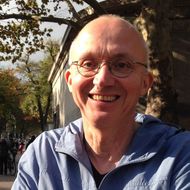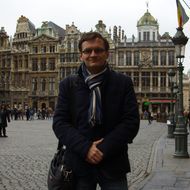- A
- A
- A
- ABC
- ABC
- ABC
- А
- А
- А
- А
- А
-
Department
-
Sсienсe
-
Education
- Bachelor's programs
- Master's programs
About the Department
The Department of Philology serves as a platform for collaboration among an international group of specialists in humanities research and in the development of innovative educational programmes in philological studies. The Department includes specialists in fields such as: the history and theory of literature, Russian and world literature, theoretical and comparative linguistics, digital humanities, discourse theory, and the history of culture.
Members of the Department teach in the Bachelor’s programme in Philology, as well as two master’s programmes: Russian Literature in Cross-Cultural and Intermedial Perspective and Language Technologies in Business and Education. They also teach in the Minor on Texts and Contexts.
Scholarly seminar: “Literature in the Second Degree: Problems and Prospects in the Contemporary Study of Comparative Literature”
The seminar’s name derives from the title of an important book by the French literary theorist and narratologist Gérard Genette, Palimpsests: Literature in the Second Degree. In this book Genette develops the concept of transtextuality, which encompasses all the relations between a text and other texts, not necessarily literary. Within this productive analytical framework, the seminar explores a wide range of issues, concerning: intertextual relations; intermediality; the comparative study of literature and music, literature and art, literature and cinema; as well as the theory and practice of translation.
In addition, we welcome topics related to the more traditional study of particular national literatures in their relation to other national cultures (reception, influences, “borrowings”). We are also particularly interested in the study of literature as a cultural phenomenon, incorporating a multiplicity of heterogeneous discourses: philosophical, ideological, and aesthetic.
-
https://elearning.hse.ru/en/mooc/
Massive Open Online Courses
-
https://www.hse.ru/en/visual/
HSE Site for the Visually Impaired
-
http://5top100.com/
Russian Academic Excellence Project 5-100
- © HSE University 1993–2024 Contacts Copyright Privacy Policy Site Map
- Edit

